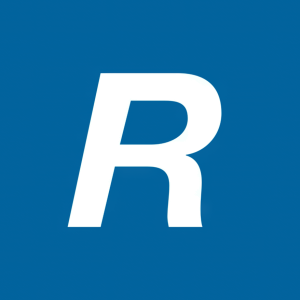Latest DB-OTO Results Show Dramatically Improved Hearing to Normal Levels in a Child with Profound Genetic Deafness within 24 Weeks and Initial Hearing Improvements in a Second Child at 6 Weeks
Rhea-AI Summary
Regeneron Pharmaceuticals, Inc. (NASDAQ: REGN) has announced positive preliminary data from the ongoing Phase 1/2 CHORD trial, showing significant hearing improvements in children with genetic deafness who received the investigational gene therapy DB-OTO. One child achieved normal hearing levels within 24 weeks, while another showed initial improvements at 6 weeks. The results were presented at the ASGCT conference, highlighting the potential of DB-OTO as a treatment for otoferlin-related deafness.
Positive
Preliminary data from the Phase 1/2 CHORD trial showed significant hearing improvements in children with genetic deafness treated with DB-OTO.
One child achieved normal hearing levels within 24 weeks of treatment.
Another child showed initial hearing improvements at 6 weeks after receiving the gene therapy.
Both the surgical procedure and DB-OTO were well tolerated with no related adverse events reported.
DB-OTO received Orphan Drug, Rare Pediatric Disease, and Fast Track Designations from the FDA, and Orphan Drug Designation from the EMA.
Negative
- None.
News Market Reaction 1 Alert
On the day this news was published, REGN declined 1.46%, reflecting a mild negative market reaction.
Data tracked by StockTitan Argus on the day of publication.
Preliminary data detailed in an ASGCT oral presentation include results for one of the youngest children in the world to receive a gene therapy for genetic deafness
Ongoing Phase 1/2 CHORD trial is currently enrolling infants and children in the U.S., UK and Spain
TARRYTOWN, N.Y., May 08, 2024 (GLOBE NEWSWIRE) -- Regeneron Pharmaceuticals, Inc. (NASDAQ: REGN) today announced that the investigational gene therapy DB-OTO improved hearing to normal levels in one child (dosed at 11 months of age) within 24 weeks, and initial hearing improvements were observed in a second child (dosed at 4 years of age) at a 6-week assessment. Both children were born with profound genetic deafness due to variants of the otoferlin gene, and the child dosed at 11 months of age is one of the youngest in the world to receive a gene therapy for genetic deafness. The results are from the ongoing Phase 1/2 CHORD trial, which is currently enrolling infants and children and were detailed during an oral presentation at the American Society of Gene and Cell Therapy (ASGCT) annual conference.
“The opportunity of providing the full complexity and spectrum of sound in children born with profound genetic deafness is a phenomenon I did not expect to see in my lifetime,” said Lawrence R. Lustig, M.D., Chair of Columbia University’s Department of Otolaryngology - Head & Neck Surgery and a clinical trial investigator. “These impressive results showcase the revolutionary promise of DB-OTO as a potential treatment for otoferlin-related deafness, and we are excited to see how this translates into an individual’s development, especially since early intervention is associated with better outcomes for speech development. With the DB-OTO CHORD trial now enrolling participants in sites across the U.S. and Europe, we’re part of the beginning of a new era of gene therapy research that looks to create treatment options that address the root cause of profound genetic deafness.”
In the trial, both children received a single intracochlear injection of DB-OTO in one ear. The surgical procedure leverages the same approach used for cochlear implants, which is amenable for use in young infants. Hearing improvements were assessed by pure tone audiometry (PTA) and auditory brainstem response (ABR). PTA is considered by auditory experts to be the gold standard measurement of hearing and is measured through behavioral confirmation of sound (e.g., turning head towards sound) emitted at different intensity levels (measured in decibels or dB). ABR corroborates these behavioral responses, serving as an objective confirmation of hearing function, by measuring electrical brainstem responses to sound emitted at different dBs.
At baseline, both participants had no behavioral (PTA) or electrophysiological (ABR) responses at maximum sound levels (≥100 dB). Following treatment with DB-OTO, both children showed auditory responses at the first efficacy assessment of 4 weeks.
As presented at ASGCT, the first participant dosed in the trial was 16 months of age at the 24-week assessment and showed:
- Improvement of hearing to normal levels across key speech frequencies, with an average 84 dB improvement from baseline and one frequency measure reaching 10 dB in hearing level per PTA. Across all tested frequencies, an average 80 dB improvement from baseline was observed.
- Positive ABR responses, with best frequency reaching 45 dB.
The second participant dosed in the trial was 4 years of age at the 6-week assessment and experienced consistent results to the first participant at the same timepoint, including:
- Initial improvement of hearing with responses to loud sounds, which was observed across key speech frequencies, with an average 19 dB improvement from baseline and one frequency measure reaching 80 dB in hearing level per PTA. Across all tested frequencies, an average 16 dB improvement from baseline was observed.
- Positive ABR responses, with best frequency reaching 75 dB.
Both the surgical procedure (delivery and post-operation) and DB-OTO were well tolerated, and there were no related adverse events or serious adverse events following treatment.
DB-OTO received Orphan Drug, Rare Pediatric Disease and Fast Track Designations from the U.S. Food and Drug Administration and Orphan Drug Designation was granted by the European Medicines Agency. The potential use of DB-OTO for otoferlin-related hearing loss is currently under clinical investigation, and its safety and efficacy have not been evaluated by any regulatory authority.
About Otoferlin-related Hearing Loss
Congenital deafness (hearing loss present at birth) is a significant unmet medical need that affects approximately 1.7 out of every 1,000 children born in the U.S. Although approximately half of these cases have genetic causes, otoferlin-related hearing loss is ultra-rare. This specific condition is caused by variants in the otoferlin gene, which impairs the production of the OTOF protein that is critical for the communication between the sensory cells of the inner ear and the auditory nerve. While hearing aids and cochlear implants can amplify sound to improve hearing for individuals with a range of hearing loss, these devices do not currently restore the full spectrum of sound.
About the CHORD Trial
The CHORD trial (NCT# 05788536) is a Phase 1/2 first-in-human, multicenter, open-label trial to evaluate the safety, tolerability, and preliminary efficacy of DB-OTO in infants, children and adolescents with otoferlin variants.
Currently enrolling children across sites in the U.S., United Kingdom and Spain (<18 years of age; staggered by age in the U.S.), CHORD is being conducted in two parts. In the initial dose-escalation cohort (Part A), participants will receive a single intracochlear injection of DB-OTO in one ear, while in expansion cohort (Part B), participants will receive simultaneous single intracochlear injections of DB-OTO in both ears at the selected dose from Part A.
Additional information about the trial, including enrollment, can be obtained by contacting clinicaltrials@regeneron.com.
About DB-OTO and the Regeneron Auditory Program
DB-OTO is an investigational cell-selective, adeno-associated virus (AAV) gene therapy designed to provide durable, physiological hearing to individuals with profound, congenital hearing loss caused by variants of the otoferlin gene. The treatment aims to deliver a working copy to replace the faulty otoferlin gene using a modified, non-pathogenic virus that is delivered via an injection into the cochlea under general anesthesia (similar to the procedure used for cochlear implantation). In this gene therapy, the newly introduced otoferlin gene is under the control of a proprietary cell-specific Myo15 promoter, which is intended to restrict expression only to inner hair cells that normally express otoferlin.
The ongoing CHORD trial is Regeneron’s first clinical-stage auditory program. In addition to DB-OTO, AAV.103 is also being investigated for people with GJB2-related hearing loss.
About Regeneron
Regeneron (NASDAQ: REGN) is a leading biotechnology company that invents, develops and commercializes life-transforming medicines for people with serious diseases. Founded and led by physician-scientists, our unique ability to repeatedly and consistently translate science into medicine has led to numerous approved treatments and product candidates in development, most of which were homegrown in our laboratories. Our medicines and pipeline are designed to help patients with eye diseases, allergic and inflammatory diseases, cancer, cardiovascular and metabolic diseases, neurological diseases, hematologic conditions, infectious diseases, and rare diseases.
Regeneron pushes the boundaries of scientific discovery and accelerates drug development using our proprietary technologies, such as VelociSuite®, which produces optimized fully human antibodies and new classes of bispecific antibodies. We are shaping the next frontier of medicine with data-powered insights from the Regeneron Genetics Center® and pioneering genetic medicine platforms, enabling us to identify innovative targets and complementary approaches to potentially treat or cure diseases.
For more information, please visit www.Regeneron.com or follow Regeneron on LinkedIn, Instagram, Facebook or X.
Forward-Looking Statements and Use of Digital Media
This press release includes forward-looking statements that involve risks and uncertainties relating to future events and the future performance of Regeneron Pharmaceuticals, Inc. (“Regeneron” or the “Company”), and actual events or results may differ materially from these forward-looking statements. Words such as “anticipate,” “expect,” “intend,” “plan,” “believe,” “seek,” “estimate,” variations of such words, and similar expressions are intended to identify such forward-looking statements, although not all forward-looking statements contain these identifying words. These statements concern, and these risks and uncertainties include, among others, the nature, timing, and possible success and therapeutic applications of products marketed or otherwise commercialized by Regeneron and/or its collaborators or licensees (collectively, “Regeneron’s Products”) and product candidates being developed by Regeneron and/or its collaborators or licensees (collectively, “Regeneron’s Product Candidates”) and research and clinical programs now underway or planned, including without limitation the investigational gene therapy DB-OTO discussed in this press release as well as Regeneron’s other genetic medicine programs for hearing loss and other therapeutic areas referenced in this press release; the likelihood, timing, and scope of possible regulatory approval and commercial launch of Regeneron’s Product Candidates and new indications for Regeneron’s Products, such as DB-OTO in children with genetic hearing loss due to mutations of the otoferlin gene; the extent to which the results from the research and development programs conducted by Regeneron and/or its collaborators or licensees (including the preliminary data discussed in this press release) may be further replicated and/or lead to advancement of product candidates to clinical trials, therapeutic applications, or regulatory approval; uncertainty of the utilization, market acceptance, and commercial success of Regeneron’s Products and Regeneron’s Product Candidates and the impact of studies (whether conducted by Regeneron or others and whether mandated or voluntary), including the studies discussed or referenced in this press release, on any of the foregoing or any potential regulatory approval of Regeneron’s Products and Regeneron’s Product Candidates (such as DB-OTO); the ability of Regeneron’s collaborators, licensees, suppliers, or other third parties (as applicable) to perform manufacturing, filling, finishing, packaging, labeling, distribution, and other steps related to Regeneron’s Products and Regeneron’s Product Candidates; the ability of Regeneron to manage supply chains for multiple products and product candidates; safety issues resulting from the administration of Regeneron’s Products and Regeneron’s Product Candidates (such as DB-OTO) in patients, including serious complications or side effects in connection with the use of Regeneron’s Products and Regeneron’s Product Candidates in clinical trials; determinations by regulatory and administrative governmental authorities which may delay or restrict Regeneron’s ability to continue to develop or commercialize Regeneron’s Products and Regeneron’s Product Candidates; ongoing regulatory obligations and oversight impacting Regeneron’s Products, research and clinical programs, and business, including those relating to patient privacy; the availability and extent of reimbursement of Regeneron’s Products from third-party payers, including private payer healthcare and insurance programs, health maintenance organizations, pharmacy benefit management companies, and government programs such as Medicare and Medicaid; coverage and reimbursement determinations by such payers and new policies and procedures adopted by such payers; competing drugs and product candidates that may be superior to, or more cost effective than, Regeneron’s Products and Regeneron’s Product Candidates; unanticipated expenses; the costs of developing, producing, and selling products; the ability of Regeneron to meet any of its financial projections or guidance and changes to the assumptions underlying those projections or guidance; the potential for any license, collaboration, or supply agreement, including Regeneron’s agreements with Sanofi and Bayer (or their respective affiliated companies, as applicable) to be cancelled or terminated; the impact of public health outbreaks, epidemics, or pandemics (such as the COVID-19 pandemic) on Regeneron's business; and risks associated with intellectual property of other parties and pending or future litigation relating thereto (including without limitation the patent litigation and other related proceedings relating to EYLEA® (aflibercept) Injection), other litigation and other proceedings and government investigations relating to the Company and/or its operations (including the pending civil proceedings initiated or joined by the U.S. Department of Justice and the U.S. Attorney's Office for the District of Massachusetts), the ultimate outcome of any such proceedings and investigations, and the impact any of the foregoing may have on Regeneron’s business, prospects, operating results, and financial condition. A more complete description of these and other material risks can be found in Regeneron’s filings with the U.S. Securities and Exchange Commission, including its Form 10-K for the year ended December 31, 2023 and its Form 10-Q for the quarterly period ended March 31, 2024. Any forward-looking statements are made based on management’s current beliefs and judgment, and the reader is cautioned not to rely on any forward-looking statements made by Regeneron. Regeneron does not undertake any obligation to update (publicly or otherwise) any forward-looking statement, including without limitation any financial projection or guidance, whether as a result of new information, future events, or otherwise.
Regeneron uses its media and investor relations website and social media outlets to publish important information about the Company, including information that may be deemed material to investors. Financial and other information about Regeneron is routinely posted and is accessible on Regeneron's media and investor relations website (https://investor.regeneron.com) and its LinkedIn page (https://www.linkedin.com/company/regeneron-pharmaceuticals).
| Contacts: | |
| Media Relations Tammy Allen Tel: +1 914-306-2698 tammy.allen@regeneron.com | Investor Relations Vesna Tosic Tel: +1 914-847-5443 vesna.tosic@regeneron.com |









